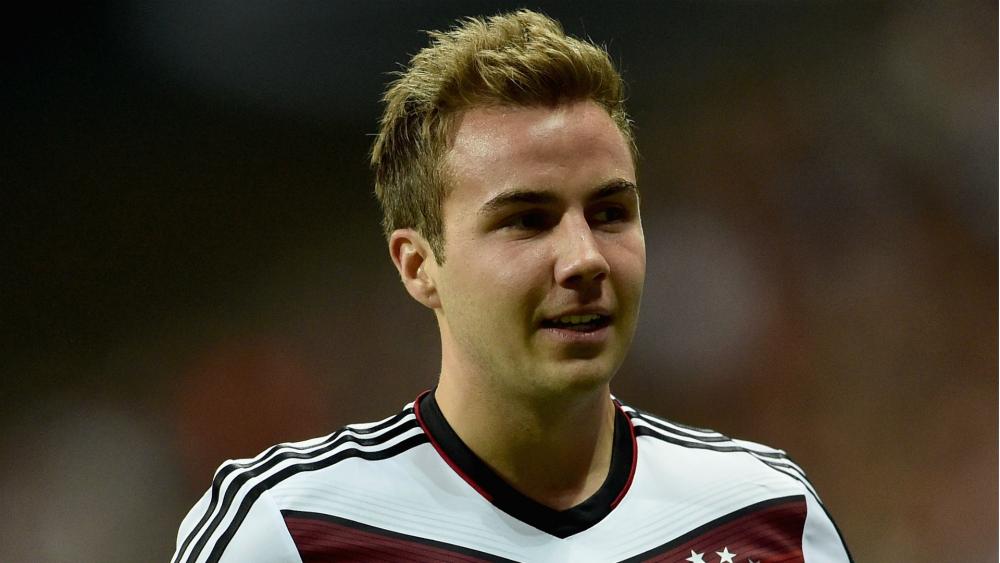Best football books of the past year to keep you busy during isolation
Found a bit more time on your hands. Here are 18 of the best football books from the past year, personally recommended by FourFourTwo
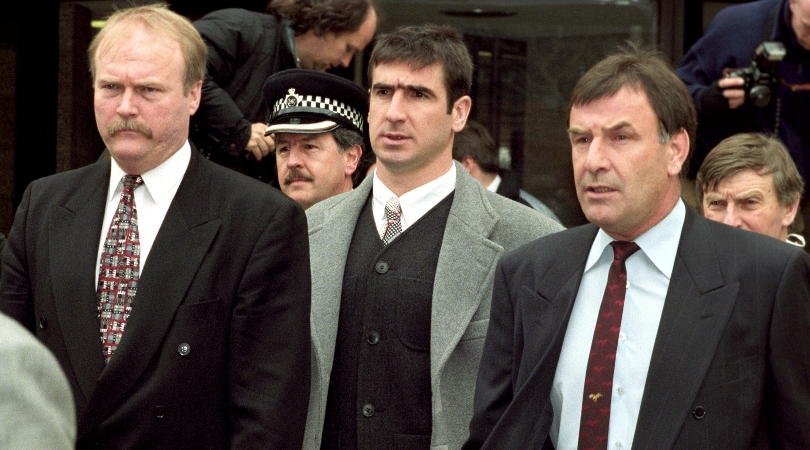
Social distancing isn't ideal - especially as the weather's getting nicer.
But the pub's loss is your brain's gain. While you're isolated indoors thanks to COVID-19, now's the time to get on with your reading list and learn something new about the beautiful game.
We've made a list of some of our favourite recent football books right now. There's a mix too, from some veering on political thrillers, to the drama of Arsenal's 1989 title-winning season.
Just no autobiographies. Seriously - we'd be here all day if we started recommending autobiographies...
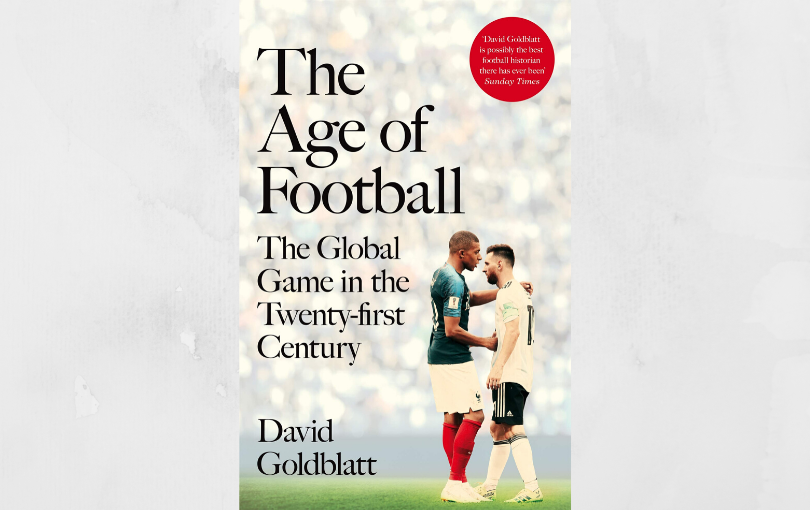
The Age of Football
David Goldblatt (Macmillan)
Get FourFourTwo Newsletter
The best features, fun and footballing quizzes, straight to your inbox every week.
Goldblatt expertly links politics, economics and culture to show how each has brought about a seismic change in football.
He has a sharp eye for the most richly textured stories; in Africa, for example, stadia made for the 2010 World Cup are hugely underused a decade later, and players remain predominantly in their “class and ethnic silos”.
Yet despite ongoing civil wars in a raft of states, globalisation’s more positive aspects have since enabled some to survive or even flourish. Shipping sponsorship saved several clubs in Somalia, while Chinese investment built several new stadia in Ethiopia, which filled as they came close to 2014 World Cup qualification.
In Europe, the national hysteria which greeted Greece’s surprise victory at Euro 2004 contrasted starkly with their dismal string of defeats at Euro 2008. Meltdown on the pitch was quickly mirrored by economic strife away from it, as well as a decade of bailouts, debt and high unemployment. Goldblatt’s book is endlessly fascinating. It’s essential reading for anyone with an interest in how football both shapes and reflects society across the globe.
Jon Spurling
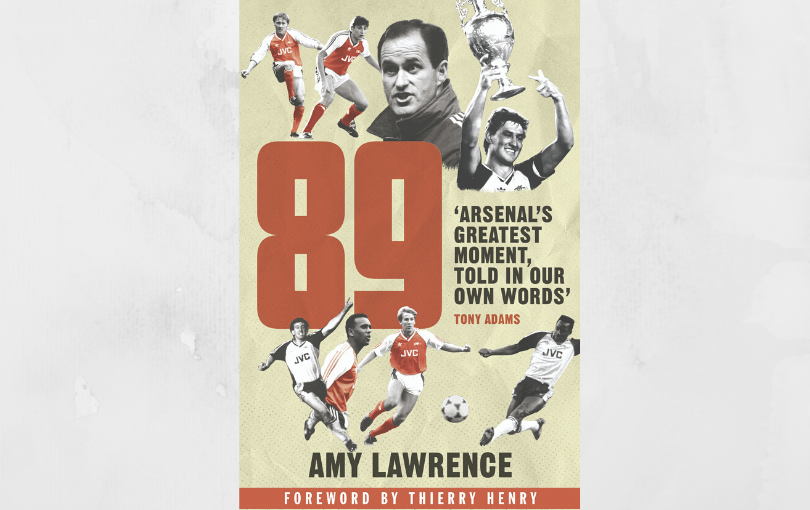
89
Amy Lawrence (Century)
Arsenal have enjoyed a number of stellar moments during their (sometimes) illustrious history. But none can equal the final match of the season at Anfield in 1989, when George Graham’s team beat title rivals Liverpool to win the First Division, thanks to a late Michael Thomas goal. This book is a richly layered piece of football history.
On one hand, it’s a 30th anniversary celebration, told from the point of view of Arsenal players and fans, revealing much about the intensity of the night and elation when Thomas finally struck.
But it’s also a warts-and-all look at ’80s football, with recollections of racism, dilapidated grounds and the impact of Hillsborough. Graham’s tactical nous shines throughout the entire campaign, as does his uncanny forecast of how the decider against Kenny Dalglish’s men would pan out.
The book concludes by pointing out that – weeks after the tragic events in Sheffield – Arsenal’s win at Anfield was a precursor of the symbiosis between football and TV, which would soon pull the sport out of the dark ages. A poignant and brilliantly told story of disaster and triumph.
Jon Spurling
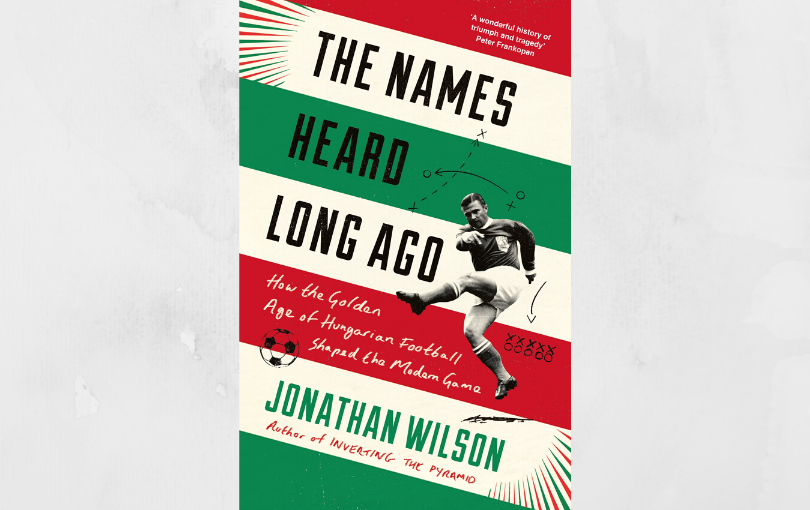
The Names Heard Long Ago
Jonathan Wilson (Blink)
Hungary’s 6-3 defeat of England at Wembley in 1953 is widely considered to be the zenith of the Magical Magyars.
A year earlier, they had won Olympic gold, and 12 months later they were defeated 3-2 in the World Cup final by West Germany. Following the 1956 revolution, Ferenc Puskas never represented his country again.
Such key moments changed the trajectory of Hungarian football, but as Wilson’s superbly nuanced new book explains, the impact of ground-breaking Hungarian coaches significantly altered world football. Ernesto Erbstein coached the crack Italian side Torino, and perished along with many of his players in the tragic Superga air crash of 1949.
Later, Holocaust survivor Bela Guttmann guided Benfica to two European Cup wins in 1961 and 1962. Guttmann allegedly cursed the Lisbon giants as he departed, following the board’s refusal to grant him a pay rise. Wilson’s study of the impact of Hungary’s football diaspora – born out of war, revolution, and hardship – is an invaluable and fascinating tale.
Jon Spurling
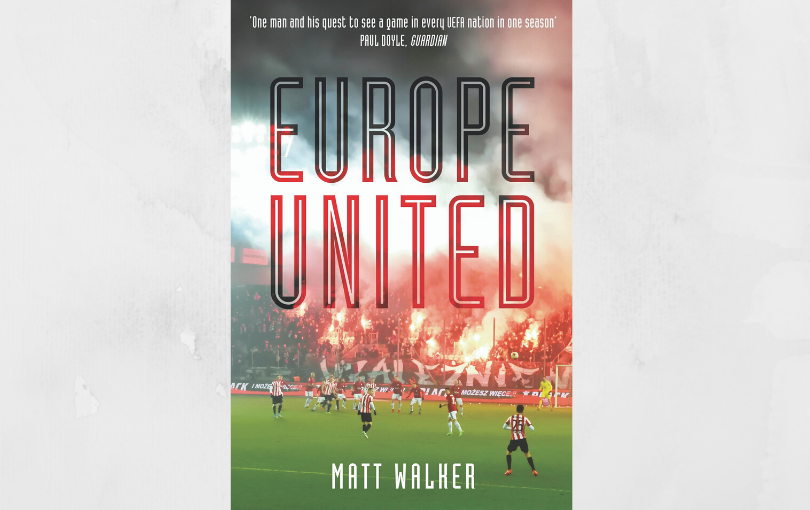
Europe United
Matt Walker (Riverrun)
Walker’s quest to watch a match in each of UEFA’s 55 nations, all in one season, is at its best when he explores European football’s less fashionable outposts.
In the Faroes and Iceland, the £240,000 that clubs receive for Europa League qualification – a week’s pay for one player at some top clubs – really is make-or-break.
Walker paints an informative, quirky, fascinating picture of matchday culture across Europe. In Norway, as Arctic terns swoop overhead, Brann supporters sing, “Niagara Falls, London and Paris, what are these compared to Bergen, the Nordic paradise?” In Albania, supporters sip 65p beer and bask in the afterglow of a surprise Euro 2016 appearance. In Armenia, 80 fans attend a ghostly top-flight fixture.
While on his travels, Walker demonstrates how Europe is becoming more homogenised – yet the have-nots crave the lucrative TV deals that see, for instance, the best Polish players moving to Germany or France. The book’s sheer breadth does mean Walker whizzes through some sections.
Even so, Europe United is a culturally savvy look at football across the continent.
Jon Spurling
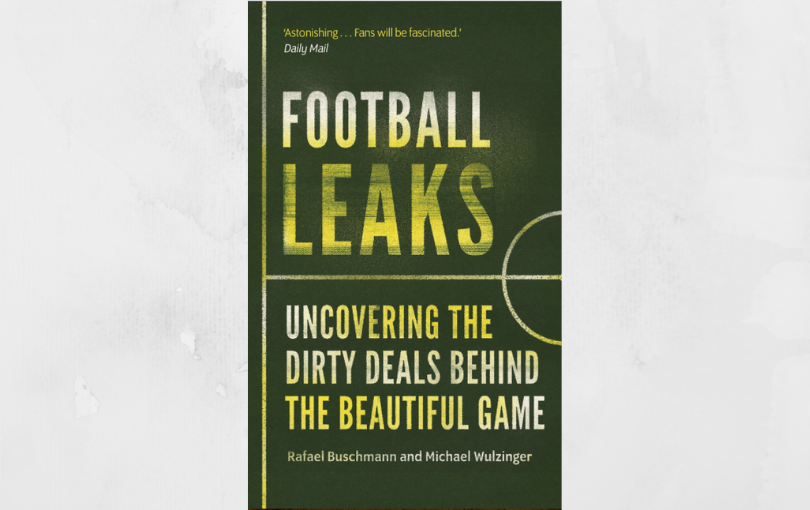
Football Leaks
Rafael Buschmann and Michael Wulzinger (Guardian Faber)
Buy it here, £7.37
Probably the biggest story in football of the last decade, and one that still feels peculiarly underreported. It’s not just one story, of course: revelations about the push for a European Super League, stars’ tax avoidance scandals in Spain, the murky background of the Qatar World Cup, and Gareth Bale’s real transfer fee have all partly come to light because of the Football Leaks website.
This book is written by two of Der Spiegel journalists who explain how they worked with a mysterious Portuguese football fan called John to sift through 18 million documents relating to players, clubs, agents and the financial arrangements they would rather have kept quiet.
Written before the arrest of Rui Pinto earlier this year, this account at times reads like a Cold War thriller, as journalists and hackers attempt to avoid the authorities in Eastern Europe and Germany.
Conor Pope
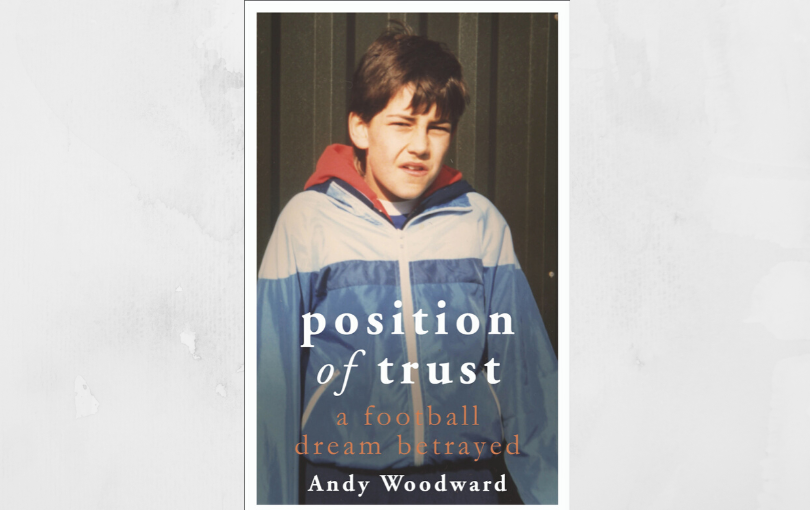
Position of Trust
Andy Woodward (Coronet)
“It was all I ever wanted to do,” writes Andy Woodward, reflecting on his formative years as a young footballer. Upon meeting youth coach Barry Bennell, Woodward’s life dramatically changed.
He was part of Crewe’s famed youth team, later turning out for Bury and Sheffield United. But this isn’t really a book about football; rather how Bennell groomed and sexually abused the young defender over several years, before entrenching himself further into Woodward’s life by marrying his sister Lynda.
Bennell’s systematic abuse has cast a long shadow on Woodward, and Position of Trust lays bare the panic attacks, flashbacks and trust issues which have blighted his life. In 2018, Bennell was jailed for 31 years.
Woodward’s willingness to tell his story has already been a catalyst for other abuse victims to speak out, and for clubs to tighten up on safeguarding. A brave and harrowing read about the devastating impact of abuse.
Jon Spurling
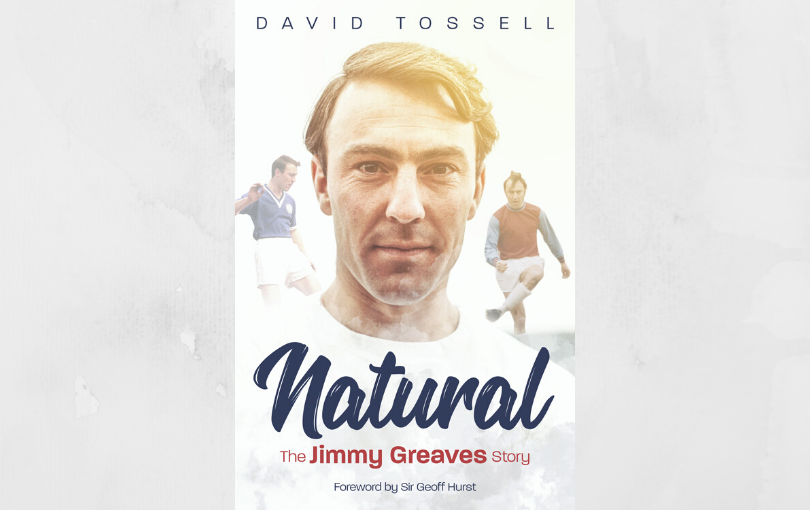
Natural: The Jimmy Greaves Story
David Tossell (Pitch)
Jimmy Greaves has a compelling story. A goal-laden career with Chelsea, Tottenham, West Ham and England was followed by a painful descent into alcoholism, then redemption as a pundit and after-dinner speaker. He left the public eye after a stroke in 2015.
Natural delivers a layered and nuanced approach to Greaves’ well-publicised battle with the bottle. Tossell suggests that the dislocation the Milan-bound striker felt following the death of his infant son could have been the trigger for his addiction.
Tossell also dispels the myth that Greaves’ career plummeted after he was left out of England’s team for the ’66 World Cup Final (he scored 96 goals in his next three seasons for Spurs), though his international career did end on a sour note. Similarly, he felt aggrieved about ITV executives deeming Saint and Greavsie too light and frothy, and pulling it as the Premier League era dawned.
Yet there is so much to admire about Jimmy Greaves, not least his prodigious goalscoring and his 40-year sobriety. Natural succeeds in closely examining a remarkable and turbulent life.
Jon Spurling
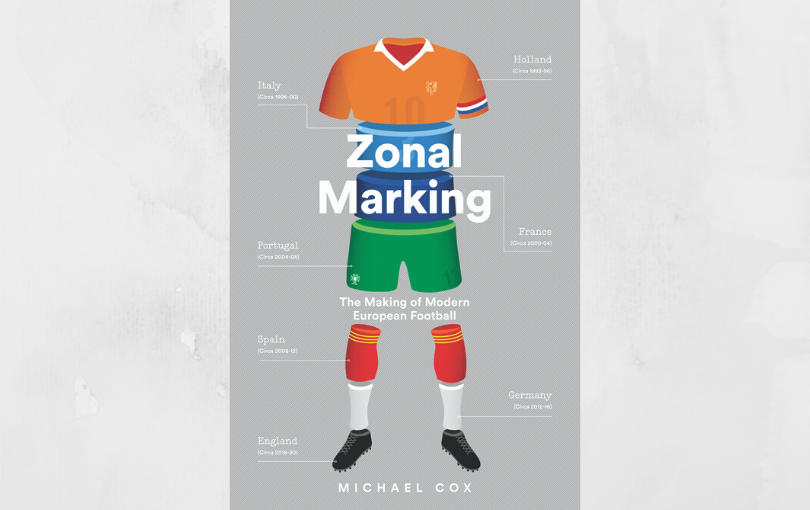
Zonal Marking
Michael Cox (Harper Collins)
“We live in a laissez-faire society, but in a team you need to have discipline,” insisted Louis van Gaal, in a none-too-subtle dig at fellow countryman – and arch individualist - Johan Cruyff in the early 1990s.
The tension between the two Dutchmen (Van Gaal was a prime collectivist; Cruyff over-indulged the likes of Gheorghe Hagi and Romario at Barcelona) shaped tactical innovations in Holland and Spain, and Zonal Marking provides a fascinating insight into how European football has developed over the last 30 years.
Michael Cox asserts that the success – or failure – of France’s national team hinges upon the contrasting roles of the humble ‘water carrier’ and revered team leader: the combination of Didier Deschamps and Zinedine Zidane in 1998, then N’Golo Kante and Paul Pogba in 2018. Cox illustrates that Leicester’s unexpected title win provoked a tactical reboot among the Premier League’s leading lights, but points out the England DNA document, launched by the FA, mirrors other nations’ styles.
An entertaining and brilliantly researched look at football tactics.
Jon Spurling
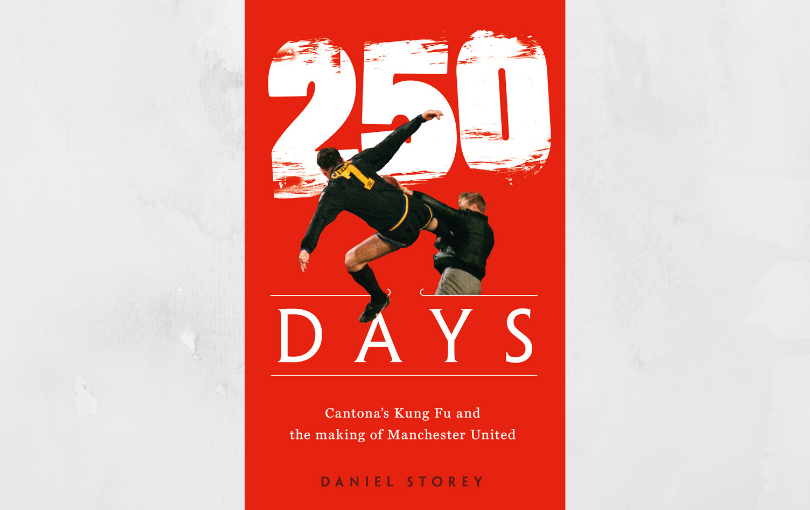
250 Days
Daniel Storey (Harper Collins)
Initially, 250 Days focuses on Manchester United talisman Eric Cantona and his notorious rush of blood to the head at Selhurst Park in 1995.
The combustible Frenchman confessed to feeling “on a tightrope every day” and, even before his assault on Matthew Simmons, Cantona’s career had been punctuated by violent outbursts and red cards.
Yet it’s the nuanced analysis of what followed (including that mad seagulls-and-trawlers press conference) that makes for gripping reading. Alex Ferguson’s masterful management of the ensuing media storm was key to keeping Cantona at United. He soon put his faith in youth-team starlets such as David Beckham and Paul Scholes, and Cantona, eventually restored to the first team in October 1995 after eight months away, acted as their role model. “The things he tries, the others try,” Ferguson noted when Cantona led an extended training session at The Cliff.
Storey’s book is a fascinating examination of how the complex Cantona rehabilitated himself at Old Trafford by inspiring the next generation of Red Devils stars.
Jon Spurling
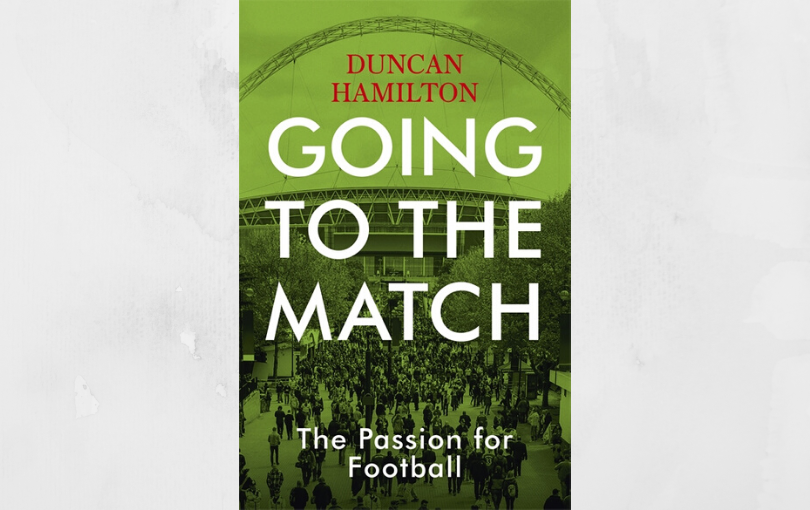
Going To The Match
Duncan Hamilton (Hodder & Stoughton)
Named after LS Lowry’s famous painting of expectant crowds swarming towards Bolton’s Burnden Park, Going To The Match shows Duncan Hamilton’s skill at teasing out the nuances of what football means to fans.
He is unashamedly nostalgic in places, lamenting that Burnden is now the site of a distinctly unlovely Asda, while mourning Scottish football’s lost glories. He is especially scathing about Newcastle owner Mike Ashley, insisting, “He doesn’t get it. He owns the flesh and the body of Newcastle, but not the soul.”
But Hamilton isn’t a football romantic wearing rose-tinted glasses; he also marvels at the pyrotechnic skills of Harry Kane and Mohamed Salah, and admits that modern football is “quicker, slicker, more attractively skilful and tactically smarter”. He even suggests the modern era might come to be regarded as a golden age.
However, it is the ability to write evocatively about outposts like Guiseley’s Nethermoor Park that shows why the two-time William Hill Sports Book of the Year winner is a master of his craft.
Jon Spurling
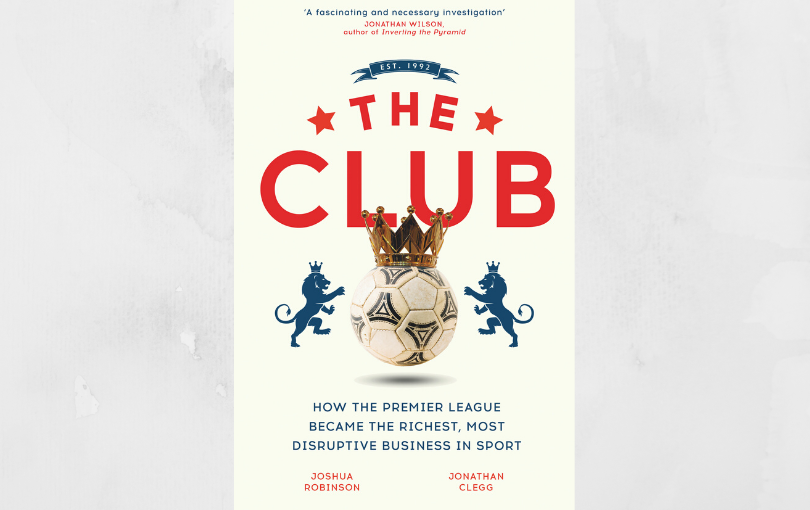
The Club
Josh Robinson & Jonathan Clegg (John Murray)
Since the Premier League made English football into a global phenomenon, some business plans have worked and some... haven’t.
See Geoffrey Richmond, Bradford’s previously cautious chairman, gambling their future in 2000 on a glut of overrated players. “He thought we were the next Manchester United,” says a club insider.
The Club also shows that even successful models were initially touch-and-go. Sheikh Mansour’s takeover of Manchester City was in peril until they snaffled Robinho on deadline day. Roman Abramovich invested in a cash-strapped Chelsea only because they qualified for the Champions League on the season’s final day in 2003. David Dein literally spilled his soup when he learned a Swiss bank had told Abramovich in error that Arsenal weren’t up for sale.
While The Club isn’t always revelatory, it is still informative and regularly entertains.
Jon Spurling
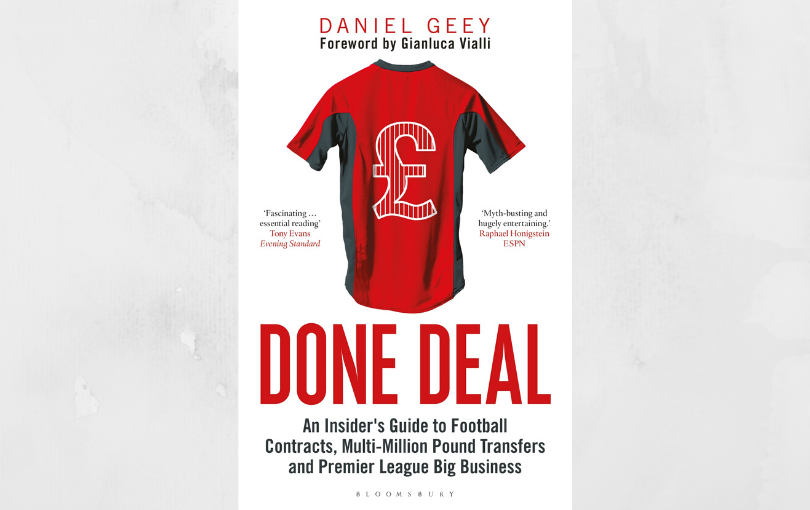
Done Deal
Daniel Geey (Bloomsbury)
Done Deal does a full and comprehensive job of explaining the myriad complexities behind the game’s biggest transfer deals.
A leading football lawyer, Geey focuses on the role of agents, TV and multi-layered player contracts, and even offers an inside view to how Financial Fair Play operates.
Geey’s eye for the unusual adds a layer of richness to the book. For example, in 2018 Fiat car workers announced a strike in protest at the €100m transfer fee involved in Cristiano Ronaldo’s switch to Juventus, as the Agnelli family own both Fiat and Juve – but only five people turned up for the march.
Geey also sheds more light on Arsenal’s infamous £40,000,001 bid for Liverpool striker Luis Suarez, and reveals how Kevin Keegan was handed £2m by an arbitration panel after Newcastle had brought in Ignacio Gonzalez against his will as manager.
It’s an enlightening read on finances at football’s top tables.
Jon Spurling
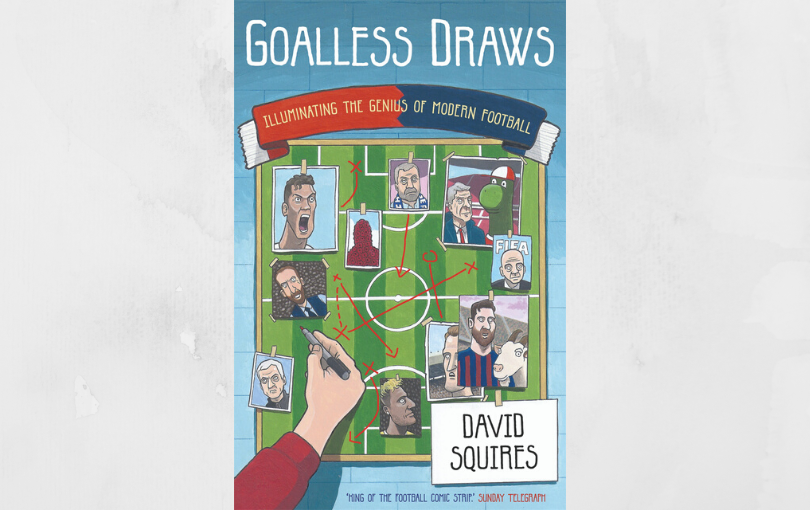
Goalless Draws
David Squires (Guardian Faber)
Squires’ latest book features a selection of his best works for The Guardian, rather than new material.
Genius cartoons from 2014 to 2018 cover the period’s big talking points, such as the 2018 World Cup, Jose Mourinho’s implosion and Brexit.
Indeed, there is politics aplenty amid all of the football and Simpsons sight gags. Jacob Rees-Mogg dons Gazza’s fake boobs and beer belly (‘Mogg on the Tyne’), while David Cameron smacks a ball into his own face, recreating Chris Brass’ famous own goal for Bury against Darlington.
And Squires’ knack of mixing satire with absurdity is exquisite: you’ll see Phil Jones gurning as an Easter Island head, as well as Dr Eva Carneiro force-feeding buns to Branislav Ivanovic.
Squires’ creativity shines through in this collection – there’s simply no one better at what he does.
Chris Flanagan
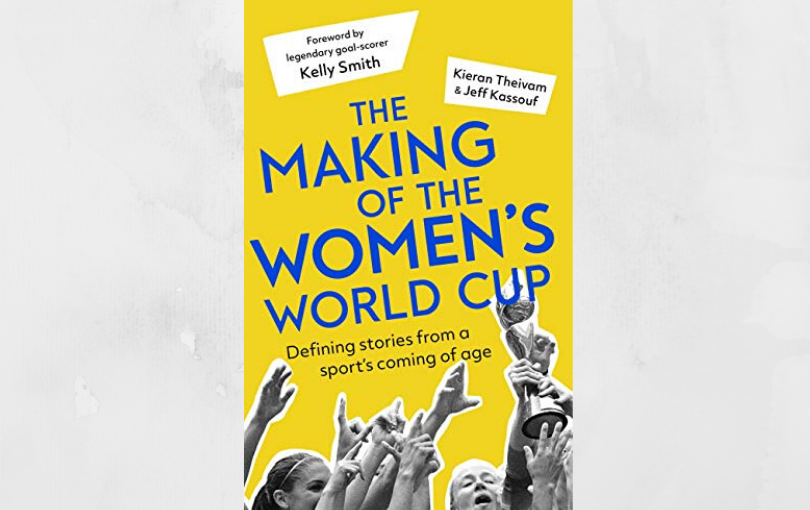
The Making of the Women’s World Cup
Kieran Theivam and Jeff Kassouf (Little, Brown)
Buy it here, £8.19
Published ahead of this summer’s tournament, which saw 11.7m people tune in to watch England’s semi-final defeat to the USA on the BBC, this is the useful corrective to any lack of knowledge you might have about the Women’s World Cup.
The history is divided into periods, so you have a greater understanding about the progress of the women’s game: we are given chapters on the USA’s dramatic 1999 win (and Carli Lloyd’s iconic celebration), the German dominance of the 2000s, Australia’s golden generation, and the rise of Brazil’s Marta.
Conor Pope
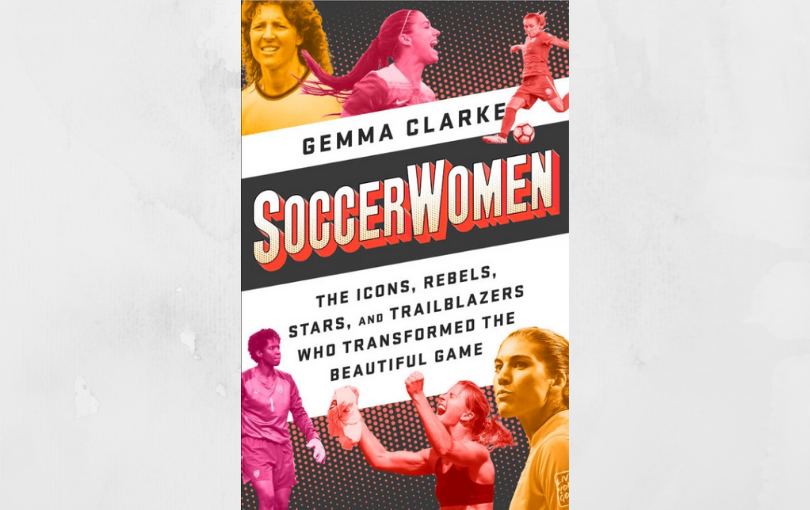
SoccerWomen
Gemma Clarke (Hachette)
Buy it here, £11.19
This collection of short biographies of women footballers covers many stars of today and the recent past – Mia Hamm, Marta and Megan Rapnioe all feature – but also traces the game back to the trailblazers of the sport’s early years. The stories of Dick, Kerr Ladies’ Lily Parr, for instance, who became the first female British footballer with a statue this year, prove just as fascinating as more familiar names.
Conor Pope
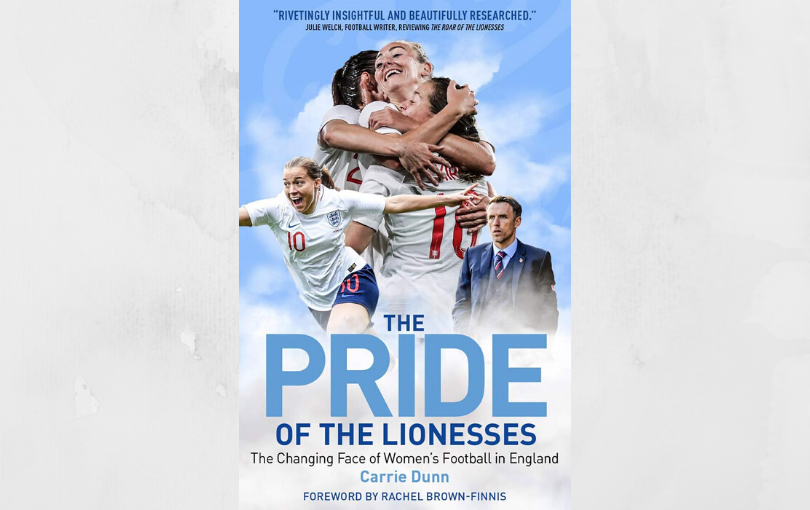
Pride of the Lionesses
Carrie Dunn (Pitch)
Buy it here, £10.65
The sequel to 2016’s Roar of the Lionesses, which traced the season after England third-place finish at the 2015 World Cup, this covers the year building up the 2019 World Cup – as well as the events in France.
As the women’s game in this country takes its first steps into full-time professionalism, and attendance records continue to get smashed in the wake of last summer’s tournament, no one is better placed to deliver a x on the state of women’s football in this country than Carrie Dunn.
Conor Pope
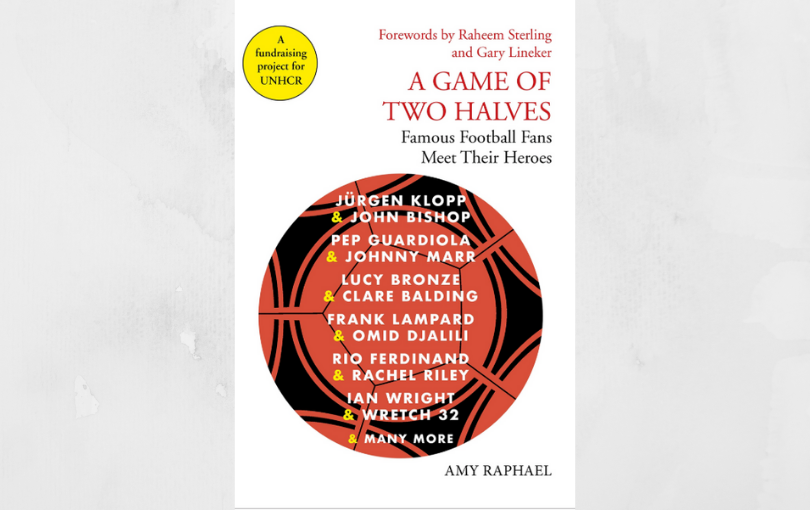
A Game of Two Halves
Amy Raphael (Atlantic)
Buy it here, £8.99
The book from which the FourFourTwo November cover interview with Liverpool’s Jurgen Klopp came, A Game of Two Halves is a brilliant idea, perfectly executed.
Conceived in order to raise money for the UN’s refugee programme, Raphael recruits famous faces (John Bishop, Johnny Marr, Rachel Riley, Omid Djalili, Clare Balding et al) and makes them interview their footballing heroes (Jurgen Klopp, Pep Guardiola, Rio Ferdinand, Lucy Bronze, Ian Wright et al).
Hiring people who are not natural interviewers is a risky business (former Smiths guitarist Marr is so intimidated by Man City boss Guardiola that he tries to wrap up theirs early), but it means the media-trained football names lift their guards a little, and making this much more revealing.
Conor Pope
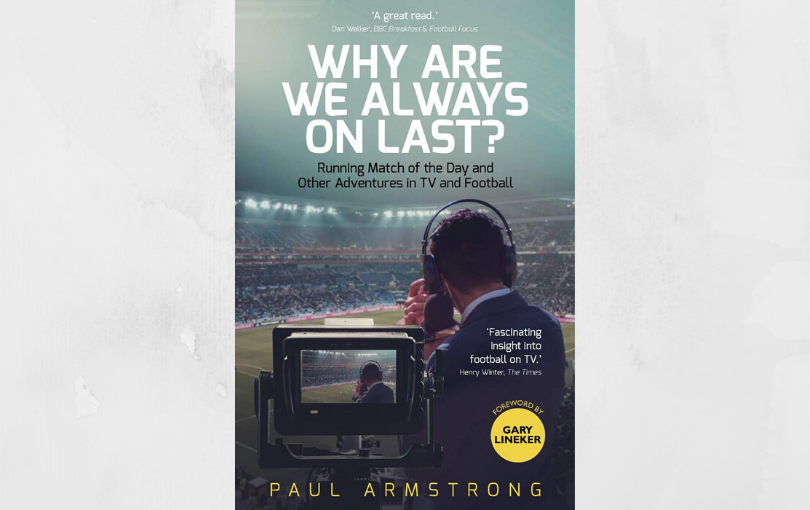
Why Are We Always On Last?
Paul Armstrong (Pitch)
Buy it here, £15.19
What’s it like to control Match of the Day? The highlights show remains a mainstay of football life in the UK. Even in an age of streaming, where goals go viral on Twitter within seconds of going in, and the idea of sitting down to watch a TV show at the time it actually airs is reserved for ‘prestige television’ like the Game of Thrones finale, MOTD still dominates.
Paul Armstrong edited the programme for 16 years, and this kind-of-memoir ably explains how it became the institution it did, the role it played in the early success of the Premier League and, of course, the pitfalls of live television.
Conor Pope
While you're here, why not take advantage of our brilliant subscribers' offer? Get the game's greatest stories and best journalism direct to your door for only £9.50 every quarter. Cheers!
NOW READ…
LIST 13 of the best football films and documentaries to watch on Amazon Prime
REVIEW Liverpool in the 2010s: The most dramatic decade in the Reds’ history
GUIDE Premier League live stream best VPN: how to watch every game from anywhere in the world
